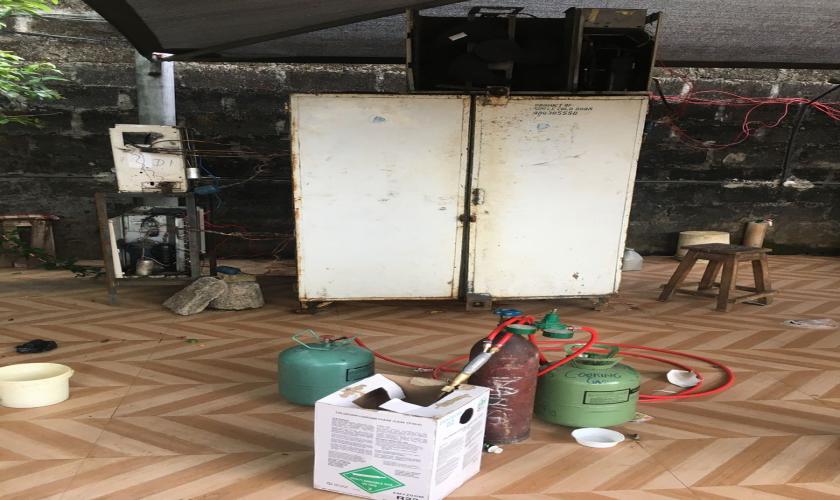
10
MayStarting an Ice Block Business in Nigeria with Locally Fabricated Machines
The demand for ice blocks in Nigeria continues to rise, fueled by the country’s hot climate and inconsistent electricity supply.
From preserving food to cooling drinks at events and in local shops, ice blocks are a daily essential. If you're looking to start a profitable business with high demand and relatively low competition, ice block production is a smart move—especially when using locally fabricated machines.
Why Choose Locally Fabricated Ice Block Machines?
-
1. Affordability
Locally made machines cost significantly less than imported ones, making them ideal for small and medium-scale entrepreneurs. You save money without compromising on functionality. -
2. Availability of Parts and Support
Since the machines are produced within Nigeria, spare parts are easy to find, and technical support is readily available—often from the very fabricators themselves. -
3. Customization
Local fabricators can design machines that suit your specific needs—whether you're producing 50 or 500 blocks per day. You can also upgrade as your business grows. -
4. Durability for Local Conditions
Locally fabricated machines are built with Nigeria’s weather and power supply realities in mind. They’re usually reinforced to handle voltage fluctuations and rough usage.
What You Need to Start
-
1. Capital
You can start with ₦500,000 to ₦2 million, depending on your production scale and whether you already have access to land, water, or power sources. -
2. Machine
Invest in a reliable locally fabricated ice block machine. You can find options that produce 30 to 100 blocks per cycle. -
3. Source of Power
A generator is usually necessary unless you are connected to a stable electricity grid. Ice block machines require steady power to complete a freezing cycle. -
4. Water Supply
Clean, potable water is essential. You might need a borehole, water tank, or filtration system depending on your source. -
5. Space for Production and Storage
A shaded or sheltered area to house your machine, allow freezing cycles, and temporarily store the blocks before sale.
Profit Potential
On average, one ice block sells for ₦150–₦300, depending on size and location. If your machine produces 100 blocks a day and you sell at ₦200 each, that's ₦20,000 daily—₦600,000 monthly (before expenses).
With proper management, you can recoup your investment in 3–6 months.
Target Customers
-
1. Market traders
-
2. Food vendors
-
3. Event planners
-
4. Supermarkets
-
5. Cold drink sellers
-
6. Residents in off-grid areas
Tips for Success
-
1. Ensure consistent power supply to meet customer demand.
-
2. Maintain hygiene and water quality for health and safety.
-
3. Build relationships with local shops and vendors.
-
4. Offer delivery services to boost income.
-
5. Plan for higher demand during dry and festive seasons.
Conclusion
Starting an ice block business in Nigeria with a locally fabricated machine is both cost-effective and sustainable.
The business has great growth potential with a steady market. With the right setup, discipline, and customer service, you can build a profitable venture that serves your community while generating consistent income.